Choosing the right blogging platform is a critical decision that shapes your content strategy, audience reach, and overall online presence. Whether you’re starting a personal blog, launching a business content hub, or building an affiliate site, the platform you choose will significantly influence your success.
This guide breaks down what you need to know to make an informed decision, compares the most popular platforms, and provides practical tips based on different use cases.
What Is a Blogging Platform?
A blogging platform is a software or service that enables you to publish content on the web in the form of blog posts. It can be a full content management system (CMS) like WordPress or a streamlined platform like Medium or Ghost.
Blogging platforms vary widely in terms of features, flexibility, scalability, ease of use, and cost. The best choice depends on your goals, technical skills, and budget.
Key Factors to Consider

Ease of Use
If you’re a beginner, look for a platform with an intuitive interface and minimal learning curve. Drag-and-drop builders and visual editors can help streamline the process.
Customization and Flexibility
Advanced users often need more control over design and functionality. Platforms that allow custom coding, plugins, and third-party integrations are better for scaling and branding.
Cost
Some platforms are free but may show ads or restrict monetization. Others offer paid plans with enhanced features, hosting, and support. Evaluate what you get at each pricing tier.
SEO Capabilities
Organic traffic is crucial for most blogs. Choose a platform that supports SEO best practices such as custom URLs, meta tags, sitemaps, and fast loading times.
Monetization Options
If you plan to earn from your blog, ensure the platform allows ad integration, affiliate marketing, sponsored content, and product sales.
Community and Support
An active user base, official documentation, forums, and customer support can be invaluable, especially when you run into issues.
Scalability
As your blog grows, you may need more resources and features. Choose a platform that can scale with your audience and content needs.
Security
Ensure the platform includes regular updates, SSL support, backup options, and protection against common cyber threats.
Popular Blogging Platforms Compared
| Platform | Best For | Price Range | Customization | Monetization | SEO Tools | Ease of Use |
|---|---|---|---|---|---|---|
| WordPress.org | Power users, businesses | Free (plus hosting) | High | Full control | Excellent | Moderate |
| WordPress.com | Beginners, hobbyists | Free – Paid | Moderate | Limited | Good | Easy |
| Wix | Visual creatives, small business | Free – Paid | Moderate | Limited | Moderate | Very Easy |
| Squarespace | Designers, brands | Paid | Moderate | Moderate | Good | Easy |
| Medium | Writers, thought leadership | Free – Paid | Low | Limited | Limited | Very Easy |
| Ghost | Publishers, developers | Paid | High | Full control | Excellent | Moderate |
| Blogger | Beginners, casual bloggers | Free | Low | Limited | Limited | Easy |
Platform Deep Dives
WordPress.org
- Pros: Ultimate flexibility, thousands of plugins and themes, full ownership.
- Cons: Requires hosting, ongoing maintenance, steeper learning curve.
- Ideal for: Businesses, professional bloggers, affiliate marketers, eCommerce.
WordPress.com
- Pros: Hosted solution, easy to start, no maintenance.
- Cons: Limited customization, ads on free plan.
- Ideal for: Beginners, personal blogs.
Wix
- Pros: Drag-and-drop interface, no coding required, mobile-friendly templates.
- Cons: Less control over back-end, not ideal for complex SEO.
- Ideal for: Artists, small service-based businesses.
Squarespace
- Pros: Stunning design templates, all-in-one solution.
- Cons: Less flexibility for developers.
- Ideal for: Portfolio sites, brands, photographers.
Medium
- Pros: Built-in audience, distraction-free writing.
- Cons: Limited branding, not suitable for monetization or SEO.
- Ideal for: Writers, journalists, essayists.
Ghost
- Pros: Clean interface, built-in SEO, great for memberships.
- Cons: Requires hosting or paid Ghost(Pro) plan.
- Ideal for: Content-heavy publications, paid newsletters.
Blogger
- Pros: Free and simple, Google integration.
- Cons: Outdated, limited features.
- Ideal for: Hobby bloggers.
Additional Considerations

Blogging Goals
Are you blogging to share personal stories, build a business, grow an audience, or sell products? Your goals should guide your platform choice.
Technical Skills
If you’re not comfortable with HTML, CSS, or managing servers, opt for platforms with user-friendly interfaces and support.
Traffic Expectations
If you plan to attract high traffic, performance and scalability become crucial. Platforms like WordPress.org and Ghost are better suited for high-volume sites.
Content Types
Will you focus on articles, videos, images, or podcasts? Make sure your platform supports your preferred media types.
Mobile Optimization
With mobile traffic dominating, ensure the platform provides responsive design or mobile-specific templates.
Tips for Making the Final Decision
- Start with a free plan or trial to test usability.
- Consider future needs such as email marketing, eCommerce, or analytics.
- Research existing blogs in your niche and see what platforms they use.
- Check user reviews and third-party comparisons.
- Don’t overcommit upfront—it’s okay to switch platforms later if necessary.
Conclusion
Choosing the best blogging platform is about aligning your needs, goals, and skills with the right set of tools. There is no one-size-fits-all answer. WordPress.org remains the most flexible and scalable choice, but platforms like Wix, Ghost, and Medium offer unique advantages for different use cases.
Start small, experiment, and focus on creating high-quality content. A great platform helps, but great content wins.







